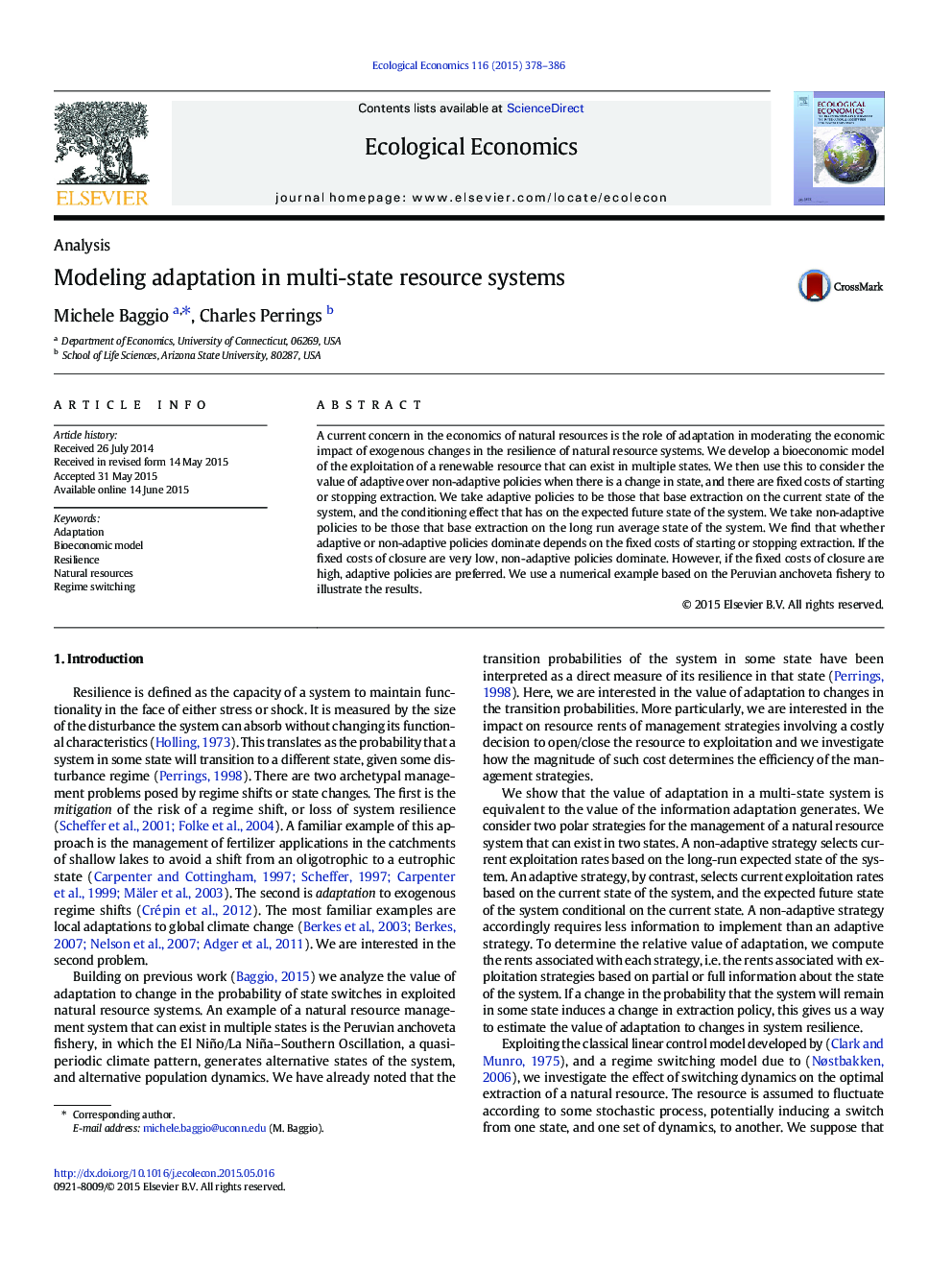| Article ID | Journal | Published Year | Pages | File Type |
|---|---|---|---|---|
| 5049454 | Ecological Economics | 2015 | 9 Pages |
A current concern in the economics of natural resources is the role of adaptation in moderating the economic impact of exogenous changes in the resilience of natural resource systems. We develop a bioeconomic model of the exploitation of a renewable resource that can exist in multiple states. We then use this to consider the value of adaptive over non-adaptive policies when there is a change in state, and there are fixed costs of starting or stopping extraction. We take adaptive policies to be those that base extraction on the current state of the system, and the conditioning effect that has on the expected future state of the system. We take non-adaptive policies to be those that base extraction on the long run average state of the system. We find that whether adaptive or non-adaptive policies dominate depends on the fixed costs of starting or stopping extraction. If the fixed costs of closure are very low, non-adaptive policies dominate. However, if the fixed costs of closure are high, adaptive policies are preferred. We use a numerical example based on the Peruvian anchoveta fishery to illustrate the results.
